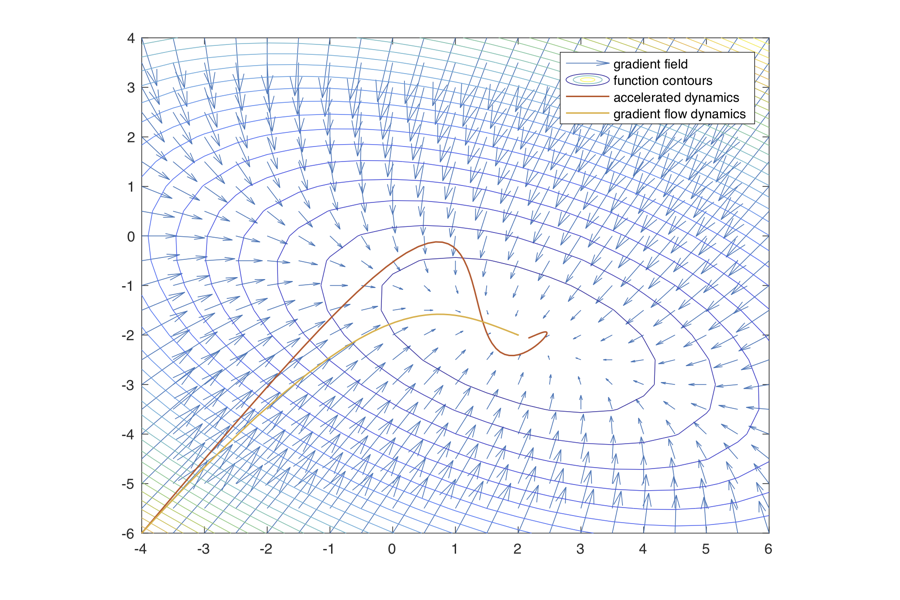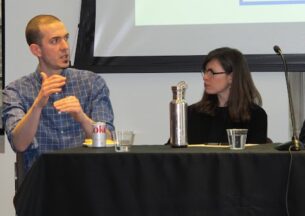Assistant Professor Lorenzo Orecchia Receives NSF CAREER Award

For his work developing new methods for the large-scale optimization challenges that underlie many modern computing applications, UChicago CS assistant professor Lorenzo Orecchia received the NSF CAREER award. The CAREER program is one of the most prestigious NSF awards, supporting early-career faculty who have the potential to serve as academic role models in research and education and to lead advances in the mission of their department or organization.
Orecchia builds new algorithms based on first-order methods, which construct a path from a given initial solution to an optimal solution by iteratively updating the current solution using local, easy-to-compute information. First-order methods, including their epitome gradient descent, are a computational workhorse of modern machine learning where they help models to describe a dataset with the smallest error, helping it make more accurate predictions on new data.
For his NSF CAREER project, “Next-Generation Design of First-Order Optimization Algorithms by the Calculus of Variations of Self-Dual Functionals,” Orecchia will build a new framework for the principled design of algorithms based on first-order methods, removing much of the guesswork and craftsmanship currently required to advance the state-of-the-art or to extend their application to novel settings. His research also draws upon similar processes observed in nature, such as the dissipation of heat and the behavior of electricity, to build more powerful algorithms for the future of artificial intelligence, distributed computing, logistics, and other advanced computational tasks.
“Many of the most impactful problems that you can work on at the intersection of applied mathematics and computer science live in machine learning,” Orecchia said. “In the beginning, the algorithms we would run on machines were inspired by the algorithms we ran on our own pencil and paper. But these days, the kinds of algorithms that we run for machine learning are more complicated; you could say they're inspired by the way nature works around us, they simulate continuous processes that converge to some minima.”
The CAREER award also supports educational efforts, and Orecchia will develop new undergraduate courses on the foundations of algorithms and convex optimization in coming quarters. These topics will be crucial for computer scientists as machine learning and data science techniques continue to spread and evolve, Orecchia said.
“These ideas in optimization are so fundamental and so important to understand a lot of machine learning algorithms. We want to get undergraduates exposed to them sooner rather than later,” Orecchia said.
For more on Orecchia’s research, read his new faculty profile from last month.












